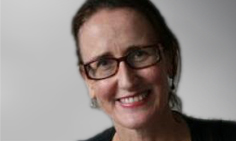MEDICAL researchers are rightly required to declare potential financial conflicts of interest when they publish their results, but what of other, more personal, factors that might lead to bias in their findings?
Should, for example, a scientist working on a particular disease disclose their own history of the condition?
And is a researcher studying the possible public health effects of circumcision obliged to disclose the status of his own foreskin? (More of that later.)
Medical ethicist Dr David Shaw argues in JAMA such factors may be as powerful a source of bias as any financial conflict of interest.
He’s faced the conundrum of whether to disclose a number of times over the course of his publishing career.
When he wrote a paper for a medical law journal arguing the addition of fluoride to water should be considered medication and was therefore illegal, Dr Shaw had to decide whether to disclose the staining to his own teeth caused by receiving too much fluoride as a child (though this was not due to water fluoridation).
The paper rested on a legal argument, not one about the possible harms of fluoride, but he nonetheless concluded it was better to err on the side of disclosure and so declared “the author has moderate fluorosis”.
Did the fact that the potential bias concerned private medical details give him “a get-out clause from disclosure”, he asks.
“It does in the sense that I have no obligation to reveal anything in my private medical or dental records. However, if I wish the arguments in my paper to stand their own merits, I must avoid concealing a potential bias and declare the conflict.”
Dr Shaw faced an even trickier dilemma in an earlier paper that was critical of non-therapeutic circumcision. Was his own circumcision status a potential biasing factor and should he therefore declare it?
“Most circumcised men are happy with that status, and most uncircumcised men are happy too”, he writes. “Being happily uncircumcised could be seen as biasing me against the practice.”
In this case, he chose not to declare although, he writes, “I now think I should have”.
It’s one thing to choose disclose your own medical details in the service of transparency, but what if the disclosure concerns somebody else?
Even if you agreed that circumcision researchers should reveal their own status, you could hardly expect them to reveal such private details about their partner, for example.
There are some cases, though, where Dr Shaw suggests it may be necessary for researchers to reveal information about a family member.
He describes one case where the principal investigator in a major cancer trial had not declared at the ethics committee phase that he had a child who was dying of the same disease.
By the time this came before the ethics committee, it was alleged patients were possibly being put at risk as the doctor’s treatment decisions were being affected by his own child’s worsening condition.
Although it might not be necessary to declare circumstances like these in a published paper, they should be disclosed at the funding and review stages, Dr Shaw argues.
We’re never going to succeed in declaring all the potential biases that might affect published research.
We humans are so complex that declaration statements would be as long as novels — and possibly as interesting — if we did.
Being aware that bias can come from our personal histories as much as financial interactions is a good start.
Jane McCredie is a Sydney-based science and medicine writer.

 more_vert
more_vert
Science is never pure or simple. It is a pursuit conducted by humans and we all have bias and vested interests whether we recognise them or not. Declarations may be useful and pertinent or irrelevant and confusing, if not entertaining. What is deceitful is pretending that our ideas are always correct and the whole truth just because we are scientists. The general public can be easily mislead into believing “science” has all the answers. We don’t. Today’s axiom may be tomorrow’s myth.
Last week Israel banned all water fluoridation at the insistence of their Health Minister but this was not widely reported in the Australian media.
NHMRC has removed guidelines for conflict of interest from its website
http://www.nhmrc.gov.au/guidelines-publications/information-guideline-developers/guideline-development-and-conflicts-interes
NHMRC has failed to publish declared interests of FRG members
http://www.nhmrc.gov.au/your-health/health-effects-water-fluoridation/fluoride-reference-group
I am a member of FAN “Professionals against water fluoridation” see fluoridealert.org